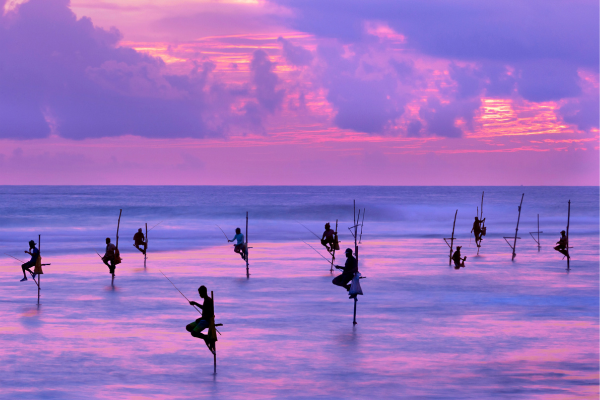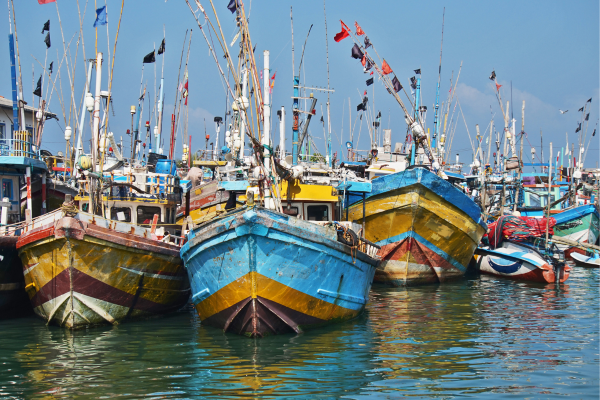The Rich Tapestry of Sri Lanka’s Fishing Industry – By Nadeeka – eLanka

Sri Lanka, with its extensive coastline and diverse marine ecosystems, boasts a vibrant and crucial fishing industry that has played a pivotal role in the country’s economy and sustenance for centuries. In this article, we will delve into the intricacies of Sri Lanka’s fishing industry, exploring its historical significance, current challenges, and potential for sustainable development.
Historical Perspective:
The roots of Sri Lanka’s fishing industry can be traced back to ancient times, where coastal communities engaged in traditional fishing methods. Over the centuries, the industry evolved, incorporating innovative techniques and technologies introduced by various cultural influences. Today, Sri Lanka’s fishing sector stands as a testament to the resilience of its people and their adaptability to changing times.
Current State of the Industry:
Sri Lanka’s fishing industry is multifaceted, encompassing both traditional artisanal fishing and modern industrial practices. The coastal regions, particularly in the Northern, Eastern, and Southern provinces, host a myriad of fishing communities that contribute significantly to the nation’s seafood production.
- Artisanal Fishing: Small-scale, artisanal fishing remains a cornerstone of Sri Lanka’s fishing industry, involving traditional methods such as handline fishing, gillnetting, and beach seining. These practices not only support local livelihoods but also contribute to the rich cultural heritage of coastal communities.
- Industrial Fishing: In parallel, Sri Lanka has embraced industrial fishing practices, utilizing modern technologies like trawlers and purse seiners. This has allowed for increased production to meet the growing demand for seafood both domestically and in international markets.
Challenges Faced by the Industry:
Despite its historical significance and economic importance, Sri Lanka’s fishing industry faces several challenges that threaten its sustainability:
- Overfishing: Unregulated and excessive fishing practices, particularly by industrial vessels, have led to concerns about overfishing in Sri Lanka’s waters. This poses a threat to the marine ecosystem and the long-term viability of the industry.
- Climate Change: The fishing industry is vulnerable to the impacts of climate change, including rising sea temperatures, unpredictable weather patterns, and ocean acidification. These factors can disrupt traditional fishing seasons and affect the abundance and distribution of marine species.
- Infrastructure and Technology Gaps: Some fishing communities, especially in remote areas, lack access to modern technology and infrastructure. This hinders their ability to optimize their fishing practices, reducing overall efficiency.

Sustainable Development and Future Prospects:
Efforts are underway to address the challenges facing Sri Lanka’s fishing industry and ensure its sustainable development:
- Regulatory Measures: The government is implementing stricter regulations to curb overfishing and protect marine ecosystems. This includes the establishment of marine protected areas and the enforcement of catch limits.
- Technology Adoption: Initiatives to introduce modern technology and equipment to fishing communities aim to enhance their productivity while minimizing environmental impact. This includes the promotion of sustainable fishing practices and the use of responsible gear.
- Diversification: Encouraging the diversification of income sources within fishing communities, such as through aquaculture and tourism-related activities, helps reduce reliance solely on traditional fishing practices.
Conclusion:
Sri Lanka’s fishing industry is at a critical juncture, balancing the need for economic growth with environmental conservation. By addressing challenges through sustainable practices, regulatory measures, and community engagement, Sri Lanka can ensure that its fishing industry continues to thrive for generations to come, maintaining the delicate equilibrium between human needs and the preservation of its rich marine biodiversity.







